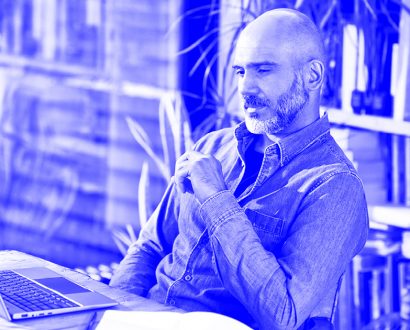Have you ever done the impossible? I once got locked in my bedroom when my door didn’t have a lock. After rescuing me, Dad offered to call my cousin to fix the door but I said I would do it myself. He turned around and stared at me like he had just seen a black unicorn. “You?” he exclaimed. “How would you know how to fix it? You studied IT!” “Good point,” I said. “How about I show you how to fix it and then you can fix it for me?” That made sense to him, and after we went shopping for a replacement handle, he fixed the door for me in five minutes based on my expert teaching.
Between you and me, I have never actually replaced a door handle in my life and had no clue how to do it. So how did I manage to teach Dad a skill that neither of us knew? While he was putting on his socks and shoes, I digested a quick YouTube video that showed me exactly how to do it. Crisis averted!
This story highlights an important difference in the way we used to learn and how we learn now. In Dad’s world, learning was delivered through traditional means of a classroom and reading material, and he couldn’t comprehend how I could possess knowledge and skills outside of what I had been taught in that classroom environment. However, you and I both know that learning also occurs beyond the classroom.
The challenge of traditional learning
The traditional methods that were used to teach us in school were great for injecting knowledge into us to be able to pass an exam, but in the real world we need to take control of our learning and master the skills we require to survive and thrive in life. With technology playing such a ubiquitous role in our lives, we now have the tools to learn anything, anywhere, anytime. However, we still need a method to effectively utilise these tools.
In his book Outliers, author Malcolm Gladwell offered us the method of deliberate practice and shared with us the 10,000-hours rule. Originally explained in a study by K Anders Ericsson, the rule offers the idea that mastering any skill at a world-class level requires 10,000 hours of deliberate practice. This roughly breaks down to about 20 hours per week for a period of 10 years. Great. But what if you wanted to learn and master something quicker? Is that really possible?
The full article can be downloaded below…






